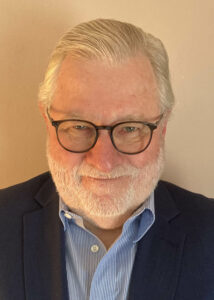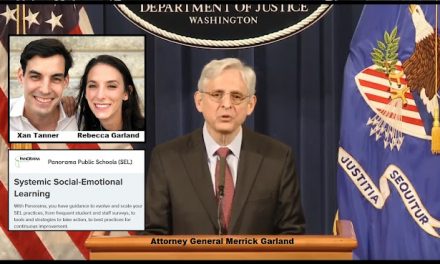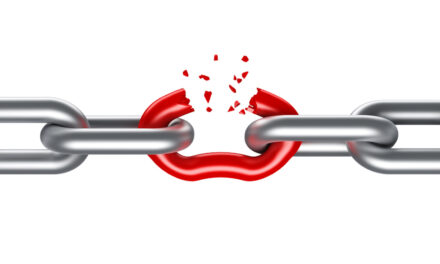LTP News Sharing:
The United Nations’ Convention on the Rights of People with Disabilities (CRPD) “is a great idea with lofty but unrealistic goals that completely fail to take into account the real world,” writes Mark P. Mostert of Able Americans in a commentary published by The Washington Times.
And no wonder. As Mark writes:
It is unsurprising that things have gone awry. Large bureaucracies are inefficient and unwieldy….
What’s needed is a different approach. At Able Americans, we advocate for innovative solutions that harness the free market, emphasize individual freedom and choice, and remove barriers to progress.
Able Americans will soon “recommend concrete policy objectives that, if enacted, would help people with disabilities live more fulfilling lives – free lives, unencumbered by stifling bureaucracy and enshrined as part of larger society, not marginalized and pushed out of sight,” Mark writes.
Read his entire commentary below.
The International Day of Persons with Disabilities
The UN’s Lip Service to a Badly Implemented Treaty
December 3rd is International Day of Persons with Disabilities. Approximately 15% of the world’s population, roughly 1.3 billion people, have one or more disabilities. For millions, their disabilities are worsened by poverty, discrimination and bias and even in highly developed countries, there remains much to be done. In less developed nations, the plight of people with disabilities remains dire despite significant efforts to support them.

Mark P. Mostert
Predictably, big bureaucracies, nationally and internationally, have been constructed to address the myriad of disability issues that undeniably exist. How effective they are in addressing the needs of persons with disabilities is another matter entirely.
Internationally, disability issues are a priority for entities such as the World Health Organization (WHO), the United Nations Educational, Scientific and Cultural Organization (UNESCO) and the United Nations (UN).
Overall, it is the UN that, for decades, has driven the disability cause internationally. Reflecting this focus, beginning in 1992, the UN implemented the International Day of Persons with Disabilities, which is on December 3rd every year. The purpose of the International Day is to celebrate those with disabilities and to make people with disabilities more visible to wider society.
Furthermore, after decades of formulating policy, in 2006, the UN finally adopted the Convention on the Rights of People with Disabilities (CRPD), a watershed framework for addressing issues around disabilities in countries worldwide. Convention goals include, among others, no poverty, zero hunger, good health and well-being, quality education, clean water and sanitation, peace, justice and strong institutions.
Most countries scrambled to sign on to the Convention: It showed diplomatic effectiveness, provided the signatory country with significant credibility on disability-related issues and relieved relentless pressure from disability activists who clamored for more to be done.
So far, so good.
However, signing on to the Convention also meant that each country was obligated to fulfill the Convention’s goals and to regularly report meeting specific metrics in the future. Predictably, many countries, especially those in the developing world, realized that they had little, if any, capacity to meet the Convention’s goals. In many countries, resources were woefully inadequate and bias against people with disabilities was deeply entrenched in cultural beliefs. To complicate matters even further, financial and judicial corruption often means that precious funds for disability projects never reach those most in need and discrimination against people with disabilities remains a major issue. Furthermore, general societal instability, war, and famine make achieving the Convention’s goals almost impossible.
Now, 17 years after the implementation of the CRPD, alarm bells are ringing at UN headquarters. Many countries have lagged behind or completely failed to implement what they committed to do. To be sure, there will be many meetings, summits, committees, special envoys and a plethora of other hand-wringing activities that will produce a lot of talking and not much else. There will be much energy expended on repeating what hasn’t worked in the past — there might even be strongly worded letters and proclamations.
What will not happen is a clear-eyed realization that the CRPD is a great idea with lofty but unrealistic goals that completely fail to take into account the real world.
It is unsurprising that things have gone awry. Large bureaucracies are inefficient and unwieldy. Internal politics and stakeholder agendas drive turf wars and increase stagnation. Multiple layers of management dilute even the clearest and simplest of ideas.
The disappointing result? On the ground, people with disabilities are ironically marginalized by the very organizations that are trying to help. Their individual freedoms suffer. They remain on the precarious edges of their societies.
What’s needed is a different approach. At Able Americans, we advocate for innovative solutions that harness the free market, emphasize individual freedom and choice, and remove barriers to progress.
As our research comes in, we are developing a clearer picture of what can and needs to be done. At a point when our research hits critical mass, we will publish a Blueprint for a Better Deal for Americans with Disabilities that will recommend concrete policy objectives that, if enacted, would help people with disabilities live more fulfilling lives – free lives, unencumbered by stifling bureaucracy and enshrined as part of larger society, not marginalized and pushed out of sight.
Let’s begin to build services and support for people with disabilities worldwide from the ground up, not the UN down.
Dr. Mark P. Mostert is senior researcher at Able Americans, the National Center’s project to support Americans living with intellectual, developmental and physical disabilities. This was first published at The Washington Times.
Author: The National Center







